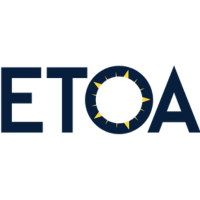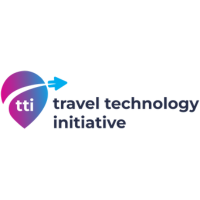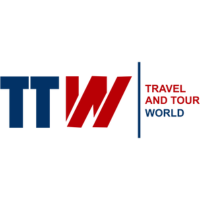Hyper-Personalisation in Travel: The Next Frontier of Targeted Marketing
)
- Published: 11 March 2025
- By: Jonathan Carter-Chapman, Marketing Director, Northstar Travel Group
- Topics: Personalisation, Travel Marketing, Customer Experience, AI in Travel, Data Strategy
- Read Time: 8 minutes
Quick Summary
Hyper-personalisation is fast becoming the gold standard in travel marketing. By harnessing artificial intelligence, real-time data, and behavioural insights, travel companies can now offer truly tailored experiences to their customers.
From predictive offers to dynamic itineraries, the tourism industry is shifting towards a one-to-one marketing model that puts the traveller—not the transaction—at the centre.
REGISTRATION NOW LIVE Book Your Stand
Travel Tech Show | 25-26 June 2025 | ExCeL London
Introduction
In a travel sector increasingly shaped by technology, hyper-personalisation is emerging as the next major competitive differentiator. While personalisation has been a buzzword for years, the move toward hyper-personalisation—driven by AI, machine learning, and real-time behavioural data—is ushering in a new era of precision marketing, customer journey mapping, and enhanced engagement with clients.
As highlighted in the Forbes Travel Trends Report 2025, "travellers no longer just want a great trip—they want a trip that feels as if it was designed just for them." Thanks to digital innovation, that ambition is now within reach.
What Is Hyper-Personalisation in Travel?
Hyper-personalisation goes beyond using a customer’s name in an email. It’s about leveraging data-driven insights and predictive analytics to deliver bespoke services, customised content, and relevant offers tailored to each individual’s preferences, travel history, context, and behaviour.
According to McKinsey & Company, companies that excel at personalisation generate 40% more revenue than those that don’t. In the travel industry, this translates to higher conversion rates, stronger customer loyalty, and more immersive experiences.
Why It Matters in 2025
The modern traveller expects more. With rising demand for seamless, intuitive, and emotionally resonant journeys, the tourism sector is being pushed to adapt. Today’s consumers are:
-
Data-savvy and conscious of privacy regulations
-
Experience-led, preferring immersive experiences over generic travel packages
-
Mobile-first, often researching, booking, and reviewing in real time
-
Loyalty-agnostic, unless offered genuine value and personal relevance
As Paul Stephen, Co-founder of Remarkable Group, noted during a recent Travel Tech Show panel:
Core Technologies Powering Hyper-Personalisation
-
Artificial Intelligence (AI) and Machine Learning (ML)
These advanced tools crunch vast datasets to identify individual patterns—where people travel, how they book, what they like—and generate relevant offers, dynamic pricing, and targeted messaging. -
Real-Time Behavioural Analytics
Platforms track user actions across marketing channels to trigger instant responses, such as live chat offers or alternative destinations when a traveller abandons a search. -
Customer Data Platforms (CDPs)
CDPs unify data from multiple sources—CRM, email, web, social—into a single view of the customer, allowing travel businesses to build stronger relationships and deliver consistent, personalised journeys. -
Generative AI and Conversational Interfaces
Chatbots powered by large language models are already helping travel agents and customers plan complex, multi-city trips, allowing real-time dialogue and itinerary adjustments—all contributing to a frictionless customer journey.
Practical Applications in Travel
-
Dynamic Itineraries: Platforms like Utrip and Kayak are using AI to design daily plans based on preferences and local events, creating an immersive experience.
-
Intelligent Offers: Airlines and OTAs use machine learning to offer personalised flight upgrades, bundled packages, or ancillary services aligned with prior behaviour and price sensitivity.
-
Location-Based Messaging: Hospitality brands send real-time alerts—e.g., restaurant discounts, late checkout—enhancing the in-destination experience.
-
Voice and Visual Search: Intuitive discovery tools are simplifying travel planning, enabling travellers to search based on spoken words or images.
Key Benefits for Travel Brands
-
Increased Conversion Rates: Personalised messaging can boost conversion rates by up to 202%, according to Salesforce.
-
Improved Customer Retention: A traveller who feels understood is more likely to demonstrate customer loyalty.
-
Reduced Marketing Waste: Hyper-targeting across marketing channels lowers cost per acquisition.
-
Higher Revenue Per Booking: Up-sell and cross-sell opportunities increase when aligned with individual preferences.
By using hyper-personalisation, travel marketers can build stronger relationships, improve engagement with clients, and position themselves as leaders in an increasingly competitive market.
Challenges and Ethical Considerations
Despite its many advantages, hyper-personalisation also brings challenges:
-
Data Privacy: Balancing tailored experiences with adherence to privacy regulations like GDPR.
-
Data Silos: Disconnected systems limit the effective use of data-driven insights.
-
Algorithmic Bias: Care must be taken to avoid reinforcing stereotypes.
-
Customer Fatigue: Over-targeting can erode trust instead of building loyalty.
As Vicki Miller, Director of VisitScotland, wisely stated:
The Road Ahead
Hyper-personalisation is now a pivotal role in shaping the future of travel. Success hinges on:
-
Smart use of real-time, data-driven insights
-
Transparent, consent-based data collection
-
Human-centred design and a relentless focus on the customer journey
-
Investment in scalable tech infrastructure and advanced tools
In an era where digital transformation is accelerating, travel businesses that can deliver bespoke services at scale will lead the way. From niche travel agents to global OTAs, every player in the tourism sector has the opportunity to differentiate by offering hyper-relevant, emotionally resonant experiences.
Final Thoughts
Hyper-personalisation represents the next frontier of targeted marketing—one that’s redefining how travel is marketed, booked, and experienced. In 2025 and beyond, the winners will be those travel marketers and businesses who stop speaking to audiences—and start speaking to people.
By focusing on key trends, adopting advanced tools, and embracing ethical use of data, the travel sector can offer richer, more immersive experiences, foster stronger relationships, and secure lasting customer loyalty.
Further Reading & References
-
Forbes (2024). Travel Trends Report 2025: Hyper-Personalisation in the Spotlight
https://www.forbes.com/sites/angelinavillaclarke/2024/12/17/travel-trends-report-2025-hyper-personalisation -
Emarsys (2024). Hyper-Personalisation and AI in Retail and Travel
https://emarsys.com/learn/blog/e-commerce-personalization-trends -
Phocuswright (2023). Europe Travel Market Report
https://www.phocuswright.com/Travel-Research/Market-Overview-Sizing/Europe-Traveller-Market-Report -
McKinsey & Company (2023). Next in Personalisation 2023
https://www.mckinsey.com/business-functions/growth-marketing-and-sales/our-insights/the-future-of-personalization-and-how-to-get-ready-for-it -
Salesforce (2024). State of Marketing Report, 9th Edition
https://www.salesforce.com/resources/research-reports/state-of-marketing/ -
Lexology (2024). How to Manage the AI Transformation in Travel
https://www.lexology.com/library/detail.aspx?g=3e3001b1-98b1-4c03-b3ea-e0224f99c3c5 -
Pathmonk (2024). Marketing Trend: Hyper-Personalisation
https://pathmonk.com/marketing-trend-hyper-personalization/

)
)
)
)
)
)
)
)
)
)
)
)
)
)
)
)
)
)
)





